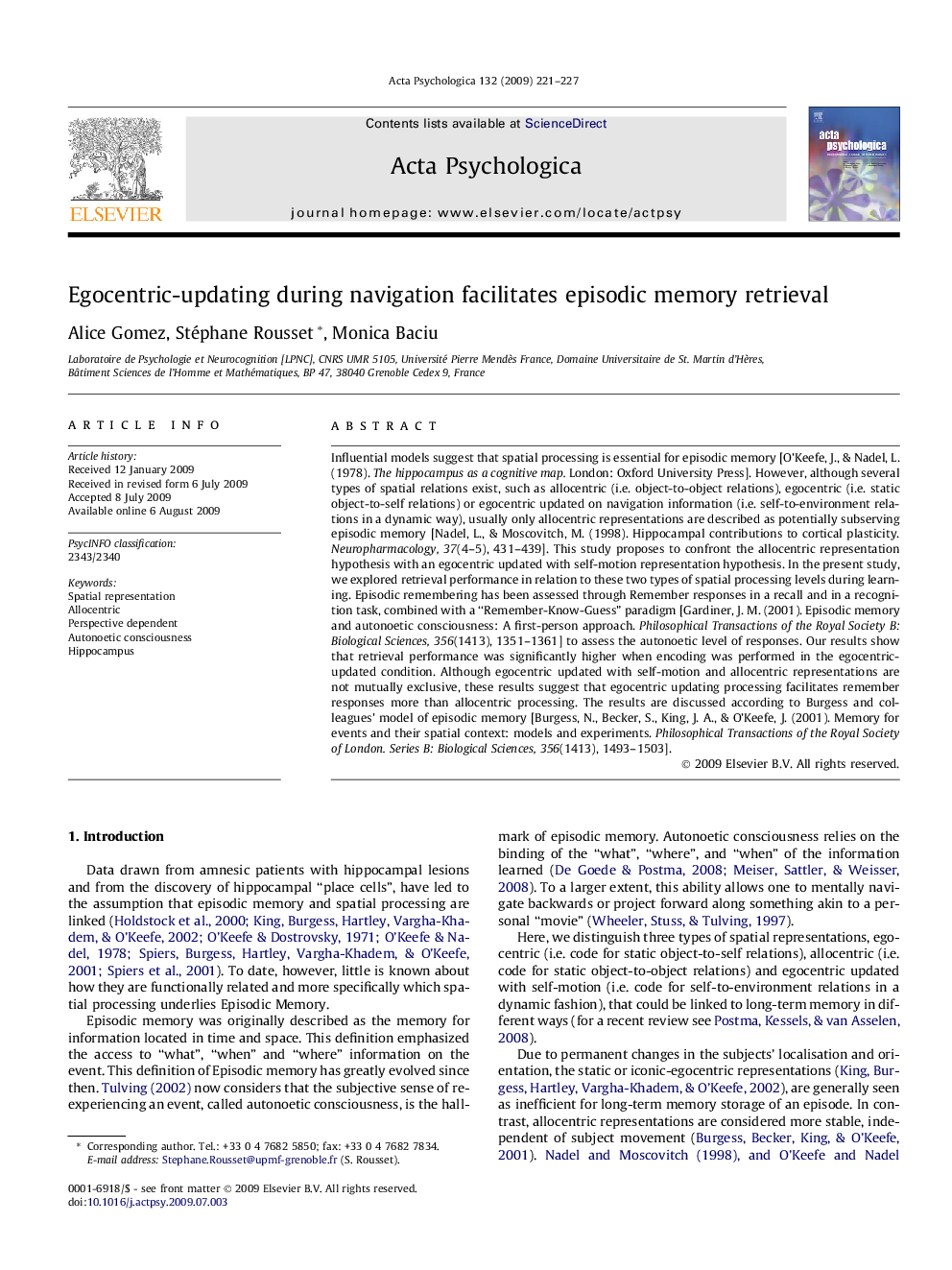| Article ID | Journal | Published Year | Pages | File Type |
|---|---|---|---|---|
| 920287 | Acta Psychologica | 2009 | 7 Pages |
Influential models suggest that spatial processing is essential for episodic memory [O’Keefe, J., & Nadel, L. (1978). The hippocampus as a cognitive map. London: Oxford University Press]. However, although several types of spatial relations exist, such as allocentric (i.e. object-to-object relations), egocentric (i.e. static object-to-self relations) or egocentric updated on navigation information (i.e. self-to-environment relations in a dynamic way), usually only allocentric representations are described as potentially subserving episodic memory [Nadel, L., & Moscovitch, M. (1998). Hippocampal contributions to cortical plasticity. Neuropharmacology, 37(4–5), 431–439]. This study proposes to confront the allocentric representation hypothesis with an egocentric updated with self-motion representation hypothesis. In the present study, we explored retrieval performance in relation to these two types of spatial processing levels during learning. Episodic remembering has been assessed through Remember responses in a recall and in a recognition task, combined with a “Remember-Know-Guess” paradigm [Gardiner, J. M. (2001). Episodic memory and autonoetic consciousness: A first-person approach. Philosophical Transactions of the Royal Society B: Biological Sciences, 356(1413), 1351–1361] to assess the autonoetic level of responses. Our results show that retrieval performance was significantly higher when encoding was performed in the egocentric-updated condition. Although egocentric updated with self-motion and allocentric representations are not mutually exclusive, these results suggest that egocentric updating processing facilitates remember responses more than allocentric processing. The results are discussed according to Burgess and colleagues’ model of episodic memory [Burgess, N., Becker, S., King, J. A., & O’Keefe, J. (2001). Memory for events and their spatial context: models and experiments. Philosophical Transactions of the Royal Society of London. Series B: Biological Sciences, 356(1413), 1493–1503].
